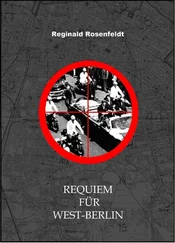Isaiah Berlin - Russian Thinkers
Здесь есть возможность читать онлайн «Isaiah Berlin - Russian Thinkers» весь текст электронной книги совершенно бесплатно (целиком полную версию без сокращений). В некоторых случаях можно слушать аудио, скачать через торрент в формате fb2 и присутствует краткое содержание. Год выпуска: 0101, Жанр: Старинная литература, на русском языке. Описание произведения, (предисловие) а так же отзывы посетителей доступны на портале библиотеки ЛибКат.
- Название:Russian Thinkers
- Автор:
- Жанр:
- Год:0101
- ISBN:нет данных
- Рейтинг книги:3 / 5. Голосов: 1
-
Избранное:Добавить в избранное
- Отзывы:
-
Ваша оценка:
- 60
- 1
- 2
- 3
- 4
- 5
Russian Thinkers: краткое содержание, описание и аннотация
Предлагаем к чтению аннотацию, описание, краткое содержание или предисловие (зависит от того, что написал сам автор книги «Russian Thinkers»). Если вы не нашли необходимую информацию о книге — напишите в комментариях, мы постараемся отыскать её.
Russian Thinkers — читать онлайн бесплатно полную книгу (весь текст) целиком
Ниже представлен текст книги, разбитый по страницам. Система сохранения места последней прочитанной страницы, позволяет с удобством читать онлайн бесплатно книгу «Russian Thinkers», без необходимости каждый раз заново искать на чём Вы остановились. Поставьте закладку, и сможете в любой момент перейти на страницу, на которой закончили чтение.
Интервал:
Закладка:
234

R U S S IAN POP U L I S M
heads of self-taught peasants, well-meaning university intellectuals and
other social casualties of the confused interim between the end of an
obsolescent feudalism and the beginning of the new capitalist phase in
a backward country. Marxist historians still tend to describe it as a
movement compounded of systematic misinterpretation of economic
facts and social realities, noble but useless individual terrorism, and
spontaneous or ill-directed peasant risings-the necessary but pathetic
beginnings of real revolutionary activity, the prelude to the real play, a
scene of naive ideas and frustrated practice destined to be swept away
by the new revolutionary, dialectical science heralded by Plekhanov
and Lenin.
What were the ends of populism? Violent disputes took place about
means and methods, about timing, but not about ultimate purposes.
Anarchism, equality, a full life for all, these were universally accepted.
It is as if the entire movement-the motley variety of revolutionary
types which Franco Venturi describes in his book1 so well and so
lovingly-Jacobins and moderates, terrorists and educators, Lavrovists
and Bakuninists, 'troglodytes', 'recalcitrants', 'country folk', members
of 'Land and Liberty' and of 'The People's Will', were all dominated
by a single myth : that once the monster was slain, the sleeping
princess- the Russian peasantry-would awaken without further ado
and live happily for ever after.
This -is the movement of which Franco Venturi has written the
history, the fullest, clearest, best-written and most impartial account
of a particular stage of the Russian revolutionary movement in any
language. Yet if the movement was a failure, if it was founded on
false premises and was so easily extinguished by the tsarist police,
has it more than historical interest- that of a narrative of the life and
death of a party, of its acts and its ideas? On this question Venturi
discreetly, as behoves an objective historian, offers no direct opinion.
He tells the story in chronological sequence; he explains what occurs;
he describes origins and consequences; he illuminates the relations of
various groups of populists to one another, and leaves moral and
political speculation to others. His work is not an apologia either for
populism or its opponents. He does not praise or condemn, and seeks
only to understand. Success in this task plainly needs no further reward.
And yet one may, at moments, wonder whether populism should be
dismissed quite as easily as it still is today, both by communist and
1 op. cit. (p. 227, note 1 above).
..
235
R U S S IAN T H I N K E R S
bourgeois historians. Were the populists so hopelessly in error? Were
Chernyshevsky and Lavrov-and Marx who listened to them-totally
deluded?
Was capitalism, in fact, inevitable in Russia? The consequences of
accelerated industrialisation prophesied by the neo-populist economists
in the 1 88os, namely a degree of social and economic misery as great
as any undergone in the west during the Industrial Revolution, did
occur, both before, and, at an increasing tempo, after the October
revolution. Were they avoidable? Some writers on history consider
this type of question to be absurd as such. What happened, happened.
We are told that if we are not to deny causality in human affairs, we
must suppose that what took place can only have done so precisely as it
did ; to ask what might have happened if the situation had been
different is the idle play of the imagination, not worthy of serious
historians. Yet this academic question is not without acute contemporary relevance. Some countries, such as, for example, Turkey, India, and some states in the Middle East and Latin America, have adopted a
slower tempo of industrialisation and one less likely to bring immediate
ruin to backward areas before they can be rehabilitated, and have done
so in conscious preference to the forced marches of collectivisation
upon which, in our day, the Russians, and after them the Chinese,
have embarked. Are these non-Marxist governments inescapably set
upon a path to ruin ? For it is populist ideas which lie at the base of
much of the socialist economic policy pursued by these and other
countries today.
When Lenin organised the Bolshevik revolution in 1 9 1 7, the
technique that he adopted, prima facie at least, resembled those commended by the Russian Jacobins, Tkachev and his followers, who had learnt them from Blanqui or Buonarroti, more than any to be found
in the writings of Marx or Engels, at any rate after 1 8 5 1 . It was not,
after all, full-grown capitalism that was enthroned in Russia in 1 9 1 7.
Russian capitalism was a still growing force, not yet in power, struggling
against the fetters imposed upon it by the monarchy and the bureaucracy, as it had done in eighteenth-century France. But Lenin acted as if the bankers and industrialists were already in control. He acted
and spoke as if this w::os so, but his revolution succeeded not so much
by taking over the centres of finance and industry (which history
should already have undermined) but by a seizure of strictly political
power on the part of a determined and trained group of professional
revolutionaries, precisely as had been advocated by Tkachev. If
2J6
R U S S IAN POPU L I S M
Russian capitalism had reached the stage which, according to Marxist
historical theory, it had to reach before a proletarian revolution could
be successful, the seizure of power by a determined minority, and a
very small one at that-a mere Putsch-could not, ex hypothesi, have
retained it long. And this, indeed, is what Plekhanov said over and
over again in his bitter denunciations of Lenin in I 9 I 7 : ignoring his
argument that much may be permitted in a backward country provided
that the results were duly saved by orthodox Marxist revolutions successfully carried out soon after in the industrially more advanced west.
These conditions were not fulfilled; Lenin's hypothesis proved
historically irrelevant; yet the Bolshevik revolution did not collapse.
Could it be .that the Marxist theory of history was mistaken? Or had
the Mensheviks misunderstood it, and concealed from themselves the
anti-democratic tendencies which had always been implicit in it? In
which case were their charges against Mikhailovsky and his friends
wholly just? By I 9 I 7 their own fears of the Bolshevik dictatorship
rested upon the same basis. Moreover, the results of the October
revolution turned out to be oddly similar to those which Tkachev's
opponents had prophesied that his methods must inevitably produce:
the emergence of an elite, wielding dictatorial power, designed in
theory to wither away once the need for it had gone; but, as the
populist democrats had said over and over again, in practice more
likely to grow in aggressiveness and strength, with a tendency towards
self-perpetuation which no dictatorship seems able to resist.
The populists were convinced that the death of the peasant commune would mean death, or at any rate a vast setback, to freedom and equality in Russia; the Left Socialist-Revolutionaries, who were
their direct descendants, transformed this into a demand for a form of
decentralised, democratic self-government among the peasants, which
Lenin adopted when he concluded his temporary alliance with them
Читать дальшеИнтервал:
Закладка:
Похожие книги на «Russian Thinkers»
Представляем Вашему вниманию похожие книги на «Russian Thinkers» списком для выбора. Мы отобрали схожую по названию и смыслу литературу в надежде предоставить читателям больше вариантов отыскать новые, интересные, ещё непрочитанные произведения.
Обсуждение, отзывы о книге «Russian Thinkers» и просто собственные мнения читателей. Оставьте ваши комментарии, напишите, что Вы думаете о произведении, его смысле или главных героях. Укажите что конкретно понравилось, а что нет, и почему Вы так считаете.










